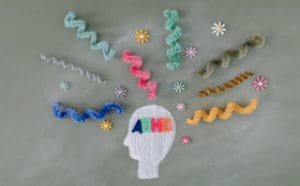Understanding ADHD, Diagnosing, and Current Research (3HR)
Attention Deficit/Hyperactivity Disorder (ADHD) is an ever-growing field of study. Our understanding of ADHD has changed as scientific research tools such as fMRI machines have improved. Important updates because of the latest research require a change in the tools for the management of symptoms that professionals use. This course will review the evidence and breakthroughs provided by research as well as misconceptions and errors in past research. Practice on diagnosis as well as reviewing the complications such as comorbidity with trauma that can arise will be completed. Identifying common problems with misdiagnosis as well as issues related to treatment with comorbidity will be briefly covered and completed with a focus on correctly diagnosing to create better treatments. Steps for treatment/symptom management will be broken down into obtainable steps with time to discuss complications and considerations of using accommodations in school settings.
Upon completion of this training, participants will be able to:
- Identify one reason for the use of clinical scales
- Identify steps for diagnosing ADHD
- Provide psychoeducational about the impact of ADHD on the brain and behavior
- Identify steps to differentiate attentional or hyperactive problems due to other disorders of due to ADHD
This course qualifies for 3 CE hours of Clinical, General Skill Building and Evidence-Based training.
Course Instructor: Leo DeBroeck MS, LMHC, CMHS, MHP
Recording Date: 10/14/2024



